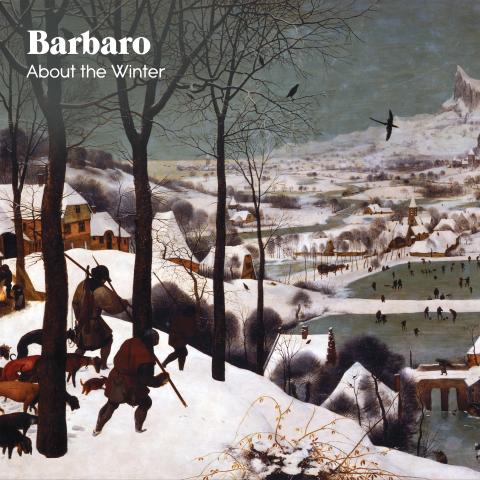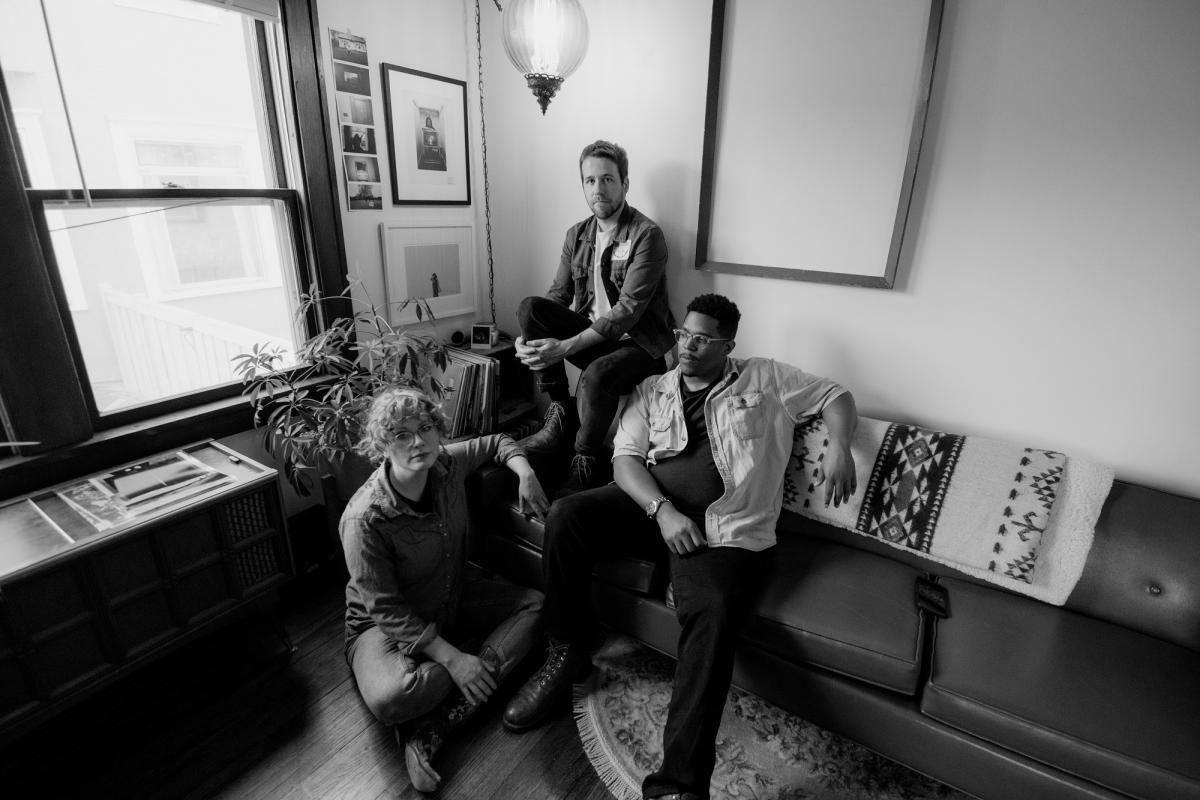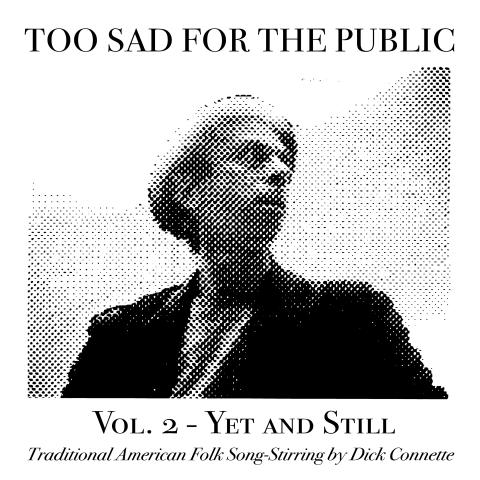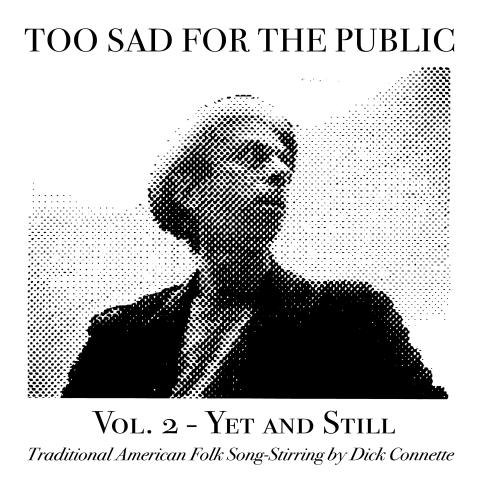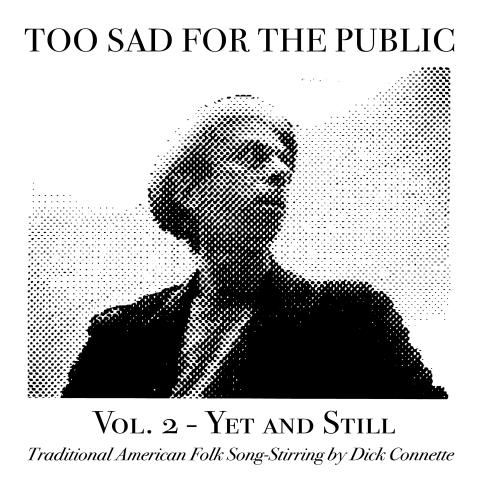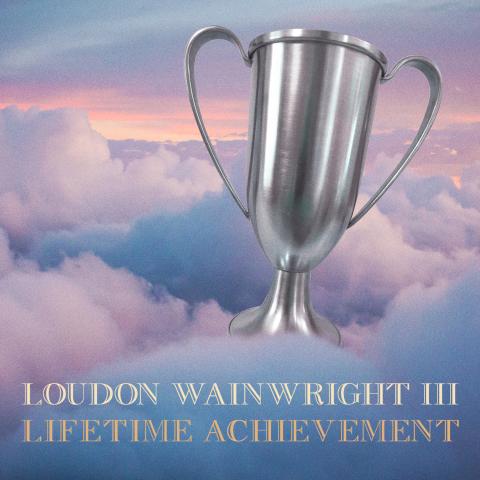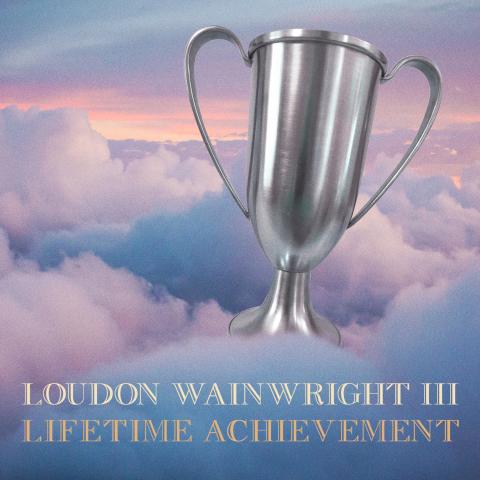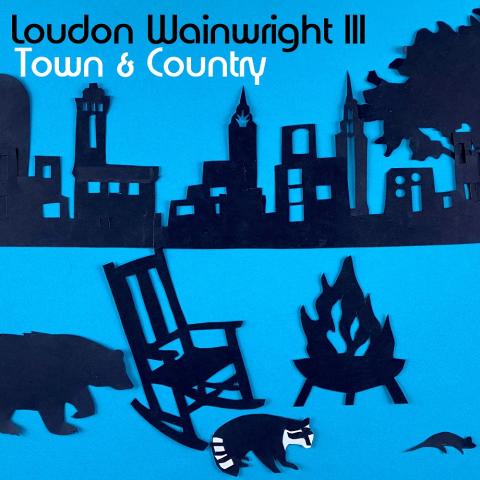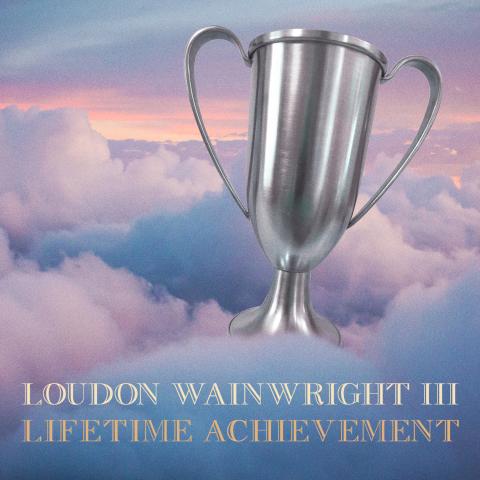Too Sad For The Public — the project helmed by StorySound Records founder Dick Connette, announce Vol. 2 - Yet and Still, out July 28 on StorySound Records.
Featuring a wide range of collaborators — including yMusic’s Rob Moose (Paul Simon, Phoebe Bridgers), Chaim Tannenbaum (Loudon Wainwright III, Kate & Anna McGarrigle), Steve Elson (Gov’t Mule, David Bowie), Steven Bernstein (Levon Helm, Rufus Wainwright), Billy Martin (Medeski Martin & Wood) and heralded StorySound folk artist Ana Egge — Yet and Still finds Too Sad For The Public boldly recontextualizing an array of traditional American musics, drawing out unexpected elements and radically uprooting songs to isolate unique portions of their DNA. Moments of sublime serendipity abound.
Lead single “Railroad Bill (pt2)” — which features vocals from Chaim Tannenbaum — originally came to life as a remix and reframing of another version of the American folksong that appears on this record, sung by Ana Egge, the album’s principal lead vocalist.
Says Connette about the track: “While I was recording and mixing Ana Egge’s version of “Railroad Bill,” there were several parts I especially liked that I didn’t use - Ana’s rhythm guitar, Chaim Tannenbaum’s harmonica solos, and Bill Ruyle’s clackety sticks on the rim of a bass drum. Plus somehow I got the idea to create a harmonica choir and wrote and recorded 24 parts over the basic form, which I spread across the first half of the song. As it happened, “Railroad Bill” was also a particular favorite of Chaim’s, so I left it to him to spin the story different — that of a boastful, triumphant, unrepentant and unreconstructed bad man.”
“Railroad Bill (pt2)” gives a modern and hypnotic spin on a train robber ballad. Its galloping rhythm and harmonica choirs bring to mind a rustic, folklorically-minded version of NEU! — more naturalistic and rough-hewn but equally entrancing. Watch the video for “Railroad Bill (pt2),” directed by LA-based collage artist Lewis Klahr, HERE.
As a whole, Yet and Still explores authorial elasticity in the American traditional and popular music, reveling in the gradual content shifts that songs undergo as they pass from performer to performer, generation to generation, audience to audience. This has long been a fascination of Dick Connette’s, going back almost 40 years to when he shifted his focus from the developments in NYC’s downtown avant garde composition scene to researching and performing traditional American music.
Through his research, he compiled his own personal Rosetta’s Stone: He calls it the Greatest Hits of Folk Music, and it comprises 35 cassettes, 15 CDs, and 7 mp3 playlists of both commercial and field recordings that he personally finds most striking — lyrically, melodically, harmonically, and instrumentally. This compilation played roles in all sorts of projects Connette undertook, from his production of Geoff Muldaur’s Bix Beiderbecke tribute Private Astronomy, his work on Loudon Wainwright III’s GRAMMY-winning Charlie Poole project High Wide & Handsome, and his own output with singer Sonya Cohen in the group Last Forever. When Sonya died in 2015, Connette carried on with Too Sad for the Public.
On Yet and Still, Connette takes his findings and draws out altogether new shapes. The project transforms through-composed bluegrass symphonies into elegiac string quartets (“Uncle Bunting,” originally built off of an old Uncle Bunt Stephens fiddle record recording from 1923); jazzily shifts the harmonic structures of Elizabeth Cotten’s “Shake Sugaree” to lend it a more ominous shadowing; and cannily casts traditional New Orleans music both in a more minimalist rhythmic rendering and all-out street band mayhem (respectively, “Hey Now (pt2)” and Hey Now (pt1)”).
Throughout, Yet and Still is a celebration of the inventive permutations and idiosyncratic processes of American musics —as well as Connette’s own imaginative approach to interpretation.

Vol. 2 - Yet and Still Tracklist:
1. Uncle Bunting (pt1)
Rob Moose - mandolin, violin, banjo, guitar, bass
2. Shake Sugaree
Ana Egge - vocal, guitar, Dick Connette - piano. Lorenzo Wolff - bass, Ethan Eubanks - drums
3. Hey Now (pt1)
Steven Bernstein - trumpet, vocal, Frank Greene - trumpet, vocal, Curtis Fowlkes - trombone, vocal, Jeffery Miller - trombone, vocal, Michael Blake - tenor saxophone, vocal, Erik Lawrence - baritone saxophone, vocal, Marcus Rojas - tuba, vocal, Billy Martin - drums/percussion, vocal
4. G. Burns in the Bottom (pt1)
Ana Egge - lead vocal, guitar, Lucy Wainwright Roche - backing vocal, Suzzy Roche - backing vocal, Dick Connette - harmonium, Dan Levine - euphonium, Lorenzo Wolff - baritone guitar, bass, Bill Ruyle - footsteps, cymbal pair, bass drum
5. Uncle Bunting (pt2)
Chaim Tannenbaum - lead vocal, harmonica, Ana Egge - backing vocal, Rayna Gellert - backing vocal, violin, viola
6. Old Forty
Ana Egge - vocal, guitar, Dan Levine - trombone, Dick Connette - synth, Lorenzo Wolff - synth, bass
7. Railroad Bill (pt1)
Ana Egge - vocal, guitar, Dick Connette - piano, maracas, Lorenzo Wolff - baritone guitar, bass, Ethan Eubanks - shakers, drums
8. Uncle Bunting (pt3)
Steve Elson - piccolo, baritone sax, tenor sax, Curtis Fowlkes - trombone, Marcus Rojas - euphonium, tuba, Ethan Eubanks - orchestral bells, drums
9. Hey Now (pt2)
Ana Egge - lead vocal, Lucy Wainwright Roche - backing vocal, Suzzy Roche - backing vocal, Lorenzo Wolff - bass, Kory Grossman - percussion, Jeff Kraus - percussion, Paul Pizzuti - percussion, Ethan Eubanks - tambourine, drums
10. Railroad Bill (pt2)
Chaim Tannenbaum - vocal, harmonica, Ana Egge - rhythm guitar, Lorenzo Wolff - lead guitar, rhythm guitar, synth, bass, Dick Connette - cymbal crunch, synth, Ethan Eubanks - shakers, Bill Ruyle - bass drum rim clicks
11. Train Your Child
Rayna Gellert - vocal, violin, Kieran Kane - guitar
12. G. Burns in the Bottom (pt2)
Jacob Garchik - trombone, euphonium, Clark Gayton - trombone, euphonium, Dan Levine - trombone, euphonium, Marcus Rojas - tuba, euphonium, Jerome Jennings - tambourine, drums


